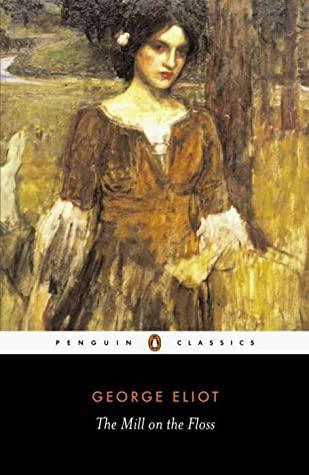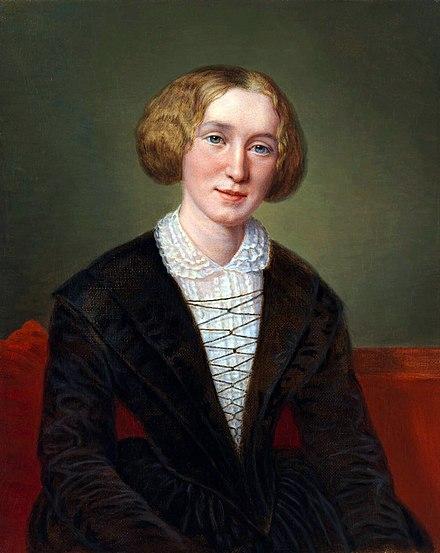George Eliot, a classic Victorian novelist, has created characters that are so distinct from other novels of the time. Published in 1860, this novel is set around the 1820s in Lincolnshire, England. I was drawn into this story from page one, with little Maggie Tulliver playing on the banks of the River Floss. Maggie is smart, fierce, and a little wild, with her dark, messy hair and the mud on her clothes. Her wit and her spirit are the despair of her mother but her father indulges his “little wench” lovingly.


Big brother Tom is eager to please and anxious to succeed, but also quick to judge. As a girl, Maggie won’t be able to put her intelligence to good use, and Tom will have to do his best with what he’s been given. From the beginning, Tom and Maggie have a close sibling bond but also a troubling one. Tom has all the authority and privilege (as both brother and older sibling), and he occasionally uses Maggie’s adoration to torment her. As she grows older, she remains spirited, but she also doesn’t understand society’s expectations as much as she should.
There’s also a strong family rivalry in this book, between Maggie’s mother’s family, the Dodsons, and the Tullivers. Maggie and Tom are routinely described as having “more Dodson” or “too much Tulliver”. I found this rivalry interesting, and could relate strongly to the opinionated Dodson sisters, coming from a family of four similarly opinionated sisters. Some readers will no doubt be put off by their lengthy conversations but I found them clever. I appreciated the way Eliot depicts these sisters as women in control of their households, where a male novelist would probably have simply depicted them as wives. In fact, Mrs. Tulliver is chastised by her sisters for not having more control over her husband and her household finances.
At first I thought the negative depiction of lawyers was going to bother me, but as the book goes on the negativity is in fact an unreasonable bias of Mr. Tulliver. Wakem is a reasonable and intelligent character, though he’s not without pride, and unlike Mr. Tulliver he’s able to weigh his options and change his mind when needed.
One of the recurring themes in this book is the moderation and denial of one’s wants and passions for the good of others. Maggie struggles with this her entire adult life. She seems to be someone who can’t do anything halfway. She might have been a great artist or intellectual (like Eliot herself), but she’s forced to suppress her passions. Phillip Wakem tries to help her find a middle ground, but I’m not sure he ever recognizes that she doesn’t have the same freedoms he has — although as someone who is constantly ridiculed due to a deformity, he understands her better than anyone else does.
Maggie was strangely old for her years in everything except in her entire want of prudence and self-command which were the qualities that made Tom manly in the midst of his intellectual boyishness. And now her lot was beginning to have a still, sad monotony, which threw her more than ever on her inward self.
As the title suggests, this is a book about a place as well as a set of characters. The mill on the Floss River is home to Maggie and her family, and their ties to land and community drive many of their decisions. Similar to Thomas Hardy, Eliot writes about the mill and the Floss like they are themselves characters in the book. The characters leave for school or for work but their lives revolve around this place that Eliot describes so beautifully.
Ultimately, Maggie must choose between love and family, but she’s also choosing between passion and integrity. Does she make her final choice because of her love for Tom and Lucy, or because she wants to do what is morally right? I felt it was more the latter, although of course the two are intertwined. Maggie doesn’t see the consequences of her actions clearly, in that her family, Phillip and Lucy will be hurt by nearly any direction she takes. She is less concerned with consequences than with thinking about what actions will allow her to live with herself, and that makes her not just a character who is excessively beholden to her family but a person of integrity.
Is Maggie ever really in love in this book? Sadly, I don’t think so. I so much wanted her to love Phillip. I think they have a friendship that is quite lovely (and might have grown into love if Tom hadn’t interfered). Her love for Stephen feels more like being pulled into an undertow. Maggie is a person who, though fiercely independent, is also greatly swayed by what others want of her, and I felt her relationship with Stephen was more of the same.
Eliot is an amazing writer, and in Maggie Tulliver she’s created yet another memorable character.

